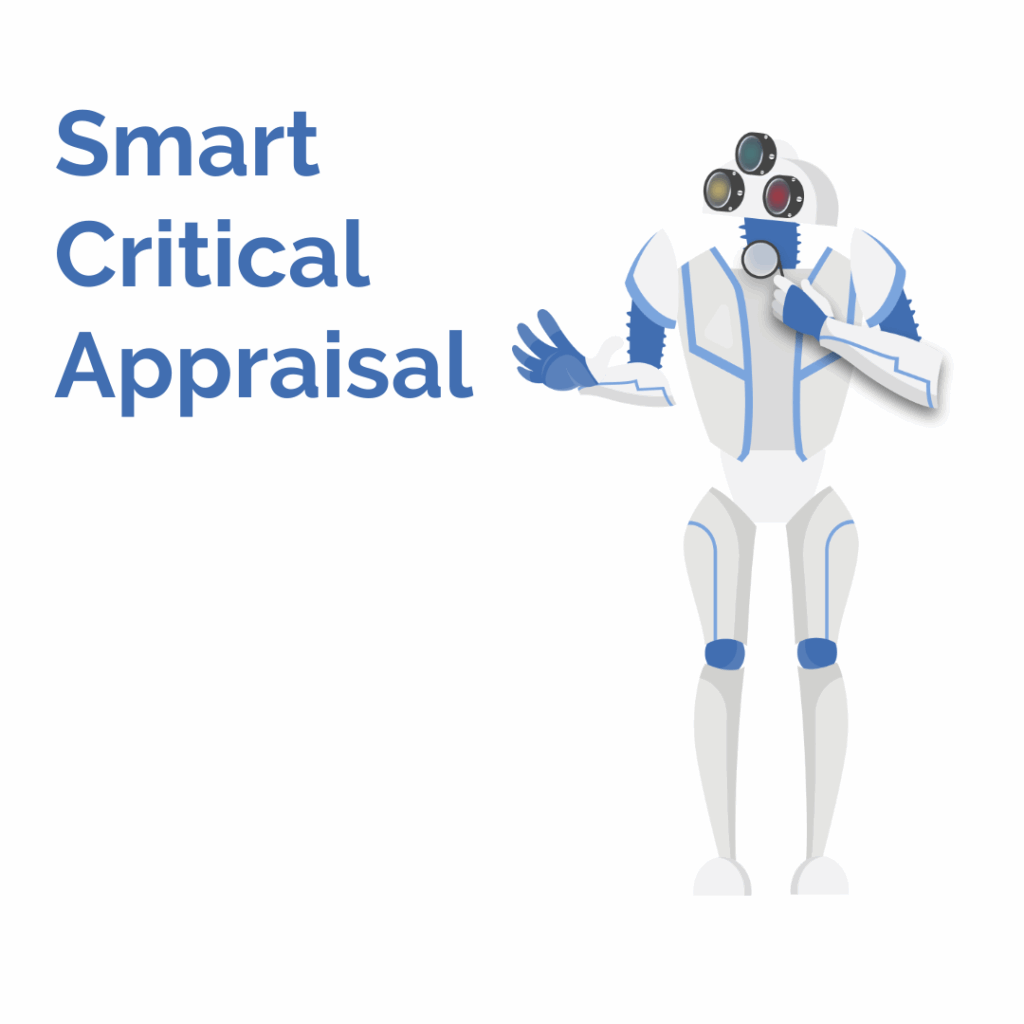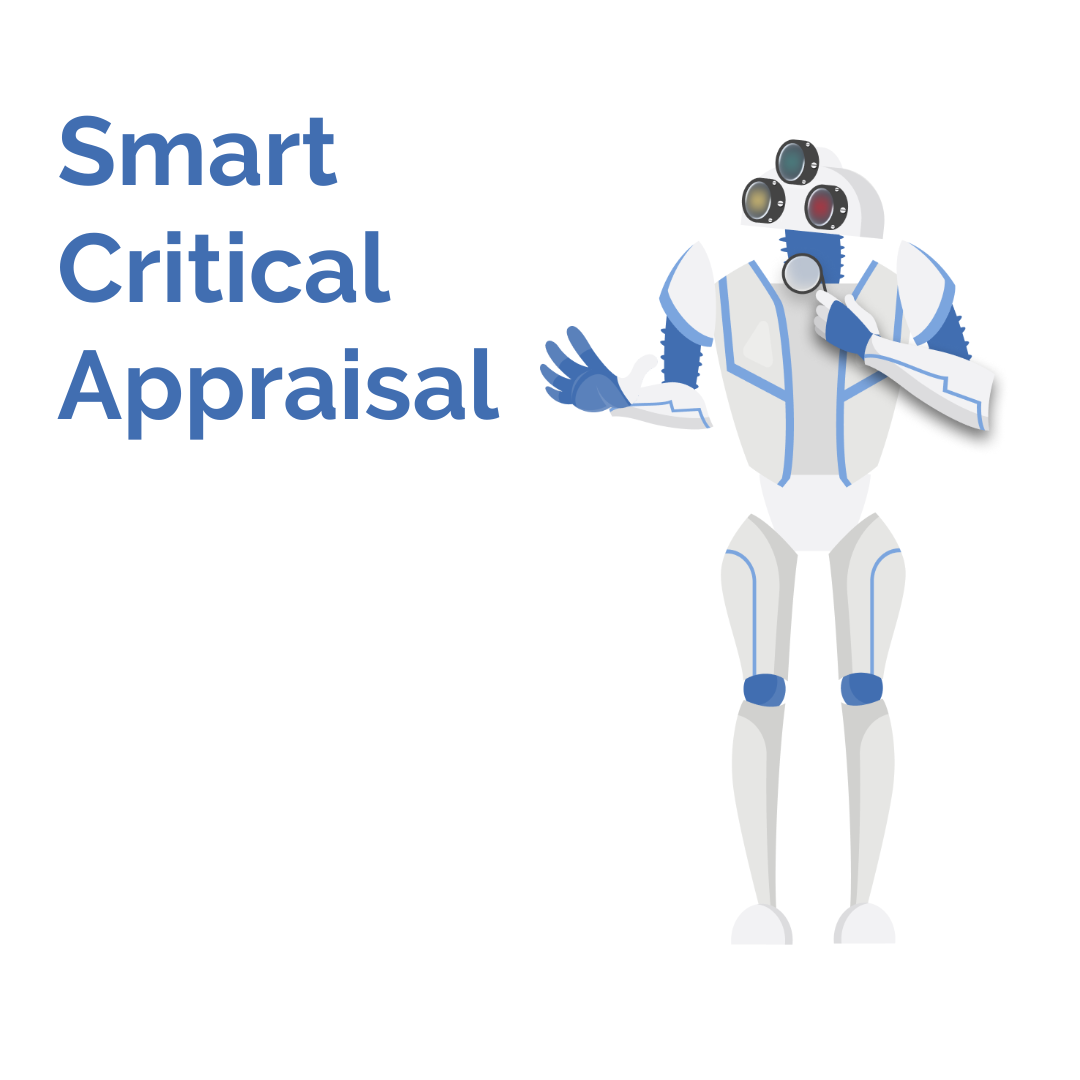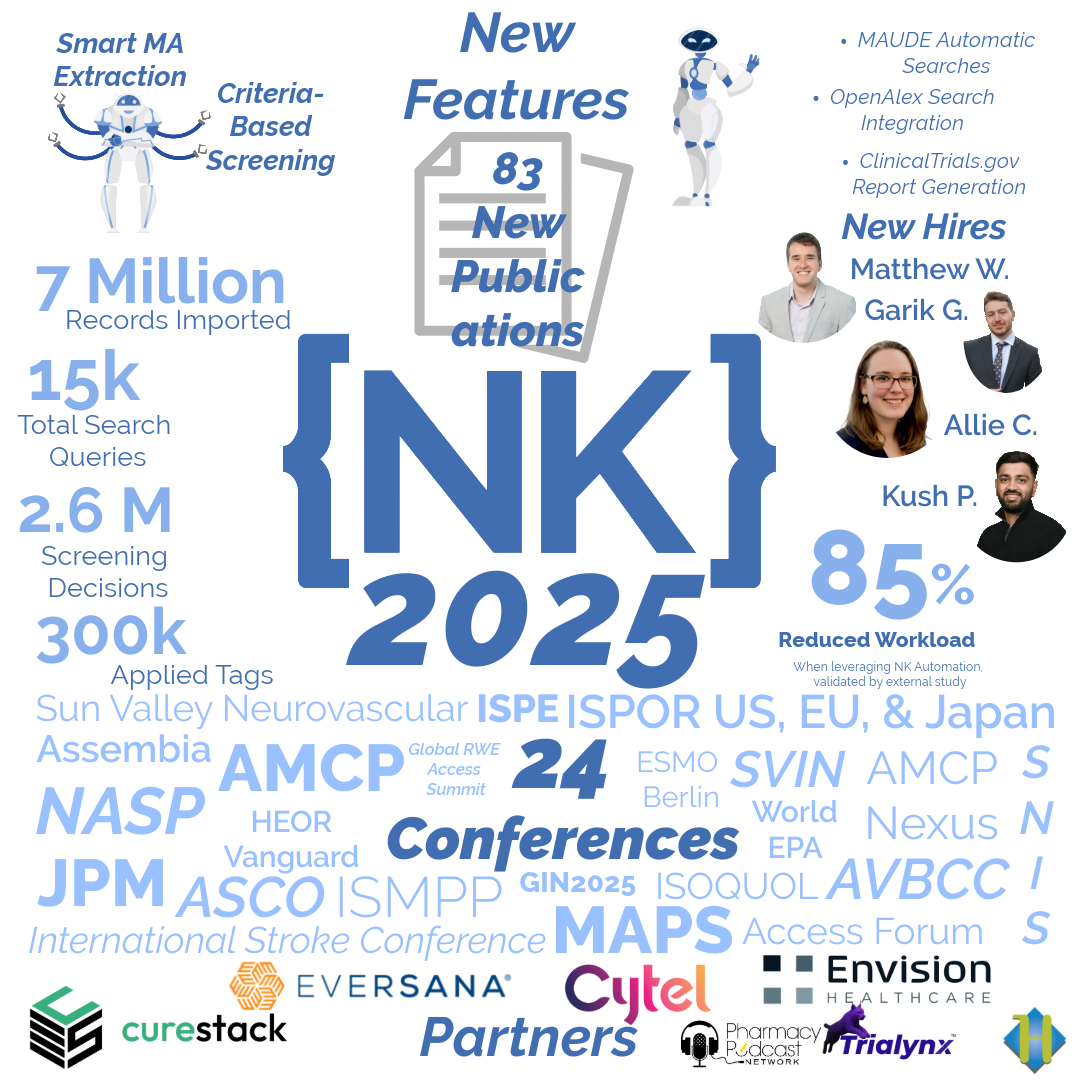Nested Knowledge Blog
A blog about systematic literature reviews?
Yep, you read that right. We started making software for conducting systematic reviews because we like doing systematic reviews. And we bet you do too.
If you do, check out this featured post, as well as other recent posts below, and come back often! We post all the time about best practices, new software features, and upcoming collaborations (that you can join!).
Better yet, subscribe to our blog, and get each new post straight to your inbox.

Meet Smart Critical Appraisal – Your AI-Powered Bias Reviewer
Stop spending hours manually assessing study quality. Let intelligent automation handle the heavy lifting while allowing you to stay in the loop. In systematic review, critical appraisal is needed for validation, but it’s also one of the most time-consuming steps
More Recent Posts

Meet Smart Critical Appraisal – Your AI-Powered Bias Reviewer
Stop spending hours manually assessing study quality. Let intelligent automation handle the heavy lifting while allowing you to stay in the loop. In systematic review, critical appraisal is needed for validation, but it’s also one of the most time-consuming steps

Understanding Deduplication in Nested Knowledge
If you’ve ever uploaded a set of articles into Nested Knowledge and noticed that the numbers shown in your Literature Search, PRISMA diagram, or uploaded files don’t quite match, you’re not alone. Deduplication is a nuanced process, and while Nested

2025 at Nested Knowledge: A Year of Strategic Growth
2025 at Nested Knowledge: A Year of Strategic Growth As 2025 comes to a close, Nested Knowledge reflects on a year defined not just by growth, but by validation. This was the year our vision for AI-enabled evidence generation moved

Nested Knowledge and Pharmacy Podcast Network Announce Strategic Collaboration to Advance Evidence-Based Podcasting in Healthcare
PITTSBURGH, PENNSYLVANIA / ACCESS Newswire / December 17, 2025 / The Pharmacy Podcast Network (PPN), the leading audio platform for pharmacy professionals, today announced a strategic collaboration with Nested Knowledge, the premier end-to-end solution for AI-enabled systematic literature reviews and

Responsible AI in Evidence Synthesis: How Nested Knowledge Meets the New Standards from Cochrane Joint Statement and RAISE Guidelines
The past year has seen a surge in global attention on the responsible use of AI in systematic reviews. With Cochrane, academic groups, and regulatory-adjacent bodies releasing clearer guidance, including new summaries of the RAISE framework, research organizations are being

13 Rapid Reviews in Record Time: Inside the AI-Powered Case Study
13 Rapid Reviews in Record Time: Inside the AI-Powered Case Study Background A global research team sought rapid, structured insights across multiple emerging oncological therapeutic areas (some in rare disease). The goal was to build early-stage evidence assets covering clinical,
